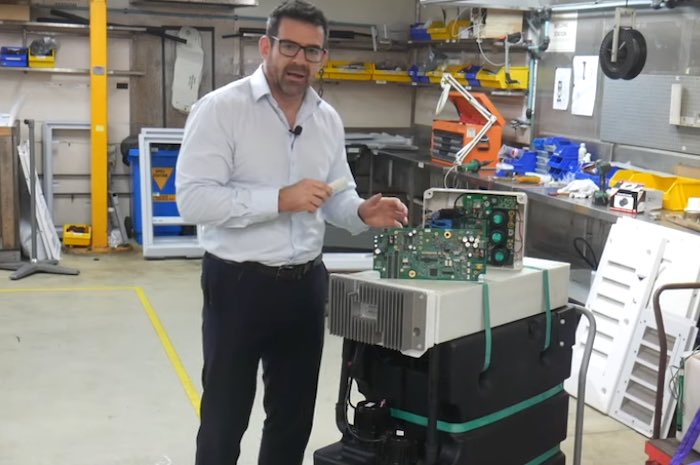
Australian energy storage company Redflow says the third generation of its zinc-bromine flow battery is expected to deliver at least 30% in production cost reductions compared to the current model.
In its quarterly results update this week, Redflow said it was making the most of Covid-19 enforced down-time to focus on developing “Gen 3” of the 10kWh ZMB battery, including a new stack design, new electronics board and an updated tank design.
Managing director Tim Harris said the changes in engineering and design were expected to result in higher quality, lower cost batteries, and pave the way for volume manufacturing at a competitive price point.
“Gen 3 is all about putting Redflow on the pathway towards a sustainable, vibrant volume manufacturing business,” Harris said in a video presentation.
“We do expect this engineering work to deliver at least 30% cost reductions versus our current model at reasonable volumes.”
Harris said the key changes included moving to a single stack design that required fewer materials and parts than the current two-stack model, and to a more “robust” tank design that would also reduce costs and boost ease of manufacturing.
He said the company’s current goal was to initiate customer trials with the Gen 3 battery solution by the end of the year.
“So this is very exciting, and we believe the current environment provides us with a unique opportunity to focus on this critical work,” Harris said.
“We’ve made key decisions that we believe will enhance our ability to successfully navigate out way through a dynamic and uncertain environment.
“We believe the actions underway will position us well for when business activity recovers.”
On the company’s results for the quarter, Redlfow’s sales were up 166% to $1.73 million for the nine months to 31 March 2020 (9 months to 31 March 2019: $0.65 million), reflecting conversion of existing orders and new sales.
Harris said the quarter had included some “great customer wins,” including the off-grid solution the company had installed at a farming property in Western Australia.
“We continue to explore opportunities for rural deployments and mini grids while actively supporting our key partners in Australia and other markets,” a company statement said.
But the quarter had also taken the full impact of the global Coronavirus pandemic, and Redflow had not been immune to the fallout, Harris said.
“Like most businesses across the world, Covid-19 has impacted sales opportunities and the Redflow’s ability to progress various customer engagements over the second half of Q3 FY2020.
“Ongoing international and domestic travel restrictions, government lock down measures in key markets such as South Africa, and broader global uncertainty around a recovery of business activity has led to delays in progressing key sales opportunities and orders that were expected for Q4 FY2020.
Despite this, Harris said sales and business development efforts with new and existing customer and partners were continuing. The company had also managed to maintain its operations and was still getting orders from some existing partners.
“Redflow retains healthy levels of battery inventory for immediate delivery from its Thailand manufacturing facility as well as in our main markets of South Africa and Australia to mitigate potential impacts from COVID-19,” he said.

Sophie is editor of One Step Off The Grid and deputy editor of its sister site, Renew Economy. Sophie has been writing about clean energy for more than a decade.
